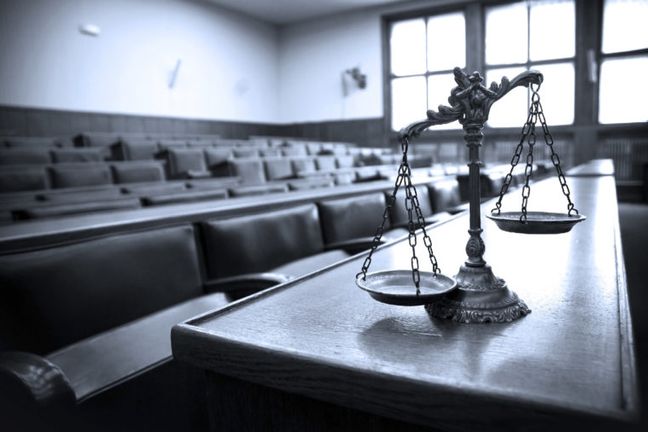Florida’s Second District Court of Appeal holds Florida’s statutory accident report privilege does not preclude discovery of statements made by individuals involved in the accident for purposes of completed the crash report.
Steven Paul Anderson v. Mary Mitchell, 44 Fla. L. Weekly D899b, Fla. 2d DCA April 5, 2019.
Plaintiff alleged defendant negligently operated his motor vehicle and struck plaintiff in a crosswalk. Defendant’s wife was in the vehicle with defendant when the subject accident occurred. During the deposition of defendant, his wife, and several investigating officers, defense counsel objected to questions about statements the defendant and his wife made to officers at the scene. Defense counsel asserted the statements were protected from discovery under the accident report privilege in Florida Statute Section 316.006(4)[1], and the witnesses refused to answer the questions.
The trial court entered an order compelling the witnesses to submit to additional depositions and to answer questions regarding statements the defendant and his wife made to law enforcement at the scene. The Defendant thereafter challenged the trial court’s ruling.
Under Florida’s Rules of Civil Procedure, parties are entitled to “discovery regarding any matter, not privileged, that is relevant to the subject matter of the pending action.” [2] It is not a ground for objection that the information sought will be inadmissible at the trial if the information sought appears reasonably calculated to lead to the discovery of admissible evidence.[3]
Recognizing that information which is merely “inadmissible” is discoverable, but that information which is “privileged” is not, the Court determined the question was whether information protected under Florida’s Accident Report Privilege was “privileged” or merely inadmissible.”
In reviewing the plain language of the statute, the Court recognized the only limitation on the information was that it may not be used as evidence at trial. The Court found no indication the information is otherwise protected from disclosure.
Therefore, the Court concluded the statute renders the protected information inadmissible, not privileged. The Court supported its conclusion through a comparison of statutes creating true privileges with statutes creating laws of admissibility. The Court found that, in statutes creating true privileges, the legislature expressly used the term “privilege,” making the information confidential and prohibiting its disclosure. On the other hand, statutes dealing with admissibility the legislature used language making information inadmissible, but not otherwise prohibiting that information’s disclosure.
Lastly, the Court noted the legislature substantially amended the statute in 1989, deleting the term “privilege;” a clear intention by the legislature to change the statute from a true privilege to a law of admissibility.
Despite the 1989 amendment, there are a number of post-1989 opinions that still refer to the statute as creating an “accident report privilege.” However, the Court in Anderson very clearly concluded that the current version of statute, section 316.066(4), does not create a true privilege which would precluding the disclosure of statements of individuals involved in an accident for the purposes of completing a crash report. Thus, it is a law of admissibility that precludes the use of the statements at trial.
By actively engaging in discovery directed at substantive issues in the case, Defendant waived the right to compel arbitration.
SHP IV Harbour Island, LLC et al v. Gail B. Boylan, 44 Fla. L. Weekly D831a, Fla. 5th DCA, March 29, 2019
The plaintiff lived at the facility for just over a month. She suffered injuries from a fall during her stay at the facility, and thereafter sued the facility’s owner, management company, and administrator. The defendants timely filed a motion to abate and compel arbitration based on an arbitration provision in the plaintiff’s resident agreement with the facility. Pursuant to the parties’ stipulation, the trial court entered an order authorizing the parties to conduct limited discovery regarding arbitration.
In a subsequent deposition of the plaintiff’s daughter, the defendants asked numerous questions that went to the merits of the underlying case. During the hearing on the motion to compel arbitration, the trial court found the deposition covered matters extrinsic to the limited scope permitted by the Court’s order, and which were consequently inconsistent with the right to arbitrate.
The Court recognized the right to arbitration, like any contract right, can be waived, and a party who seeks to rely upon that right must safeguard it and must not act inconsistently with the right. Courts have expressly held that engaging in discovery aimed at the merits of the underlying case is inconsistent with an arbitration request and constitutes a waiver of the right to arbitration. If, during the deposition, the defendants’ counsel had stuck with asking questions related only to the issue of arbitration, the right to seek arbitration would not have been waived.
The Trial Court erred in awarding attorney’s fees as a sanction for party’s failure to admit truth of requests for admissions where requests went to the ultimate issues in the case rather than relevant facts.
Tammy Sentz et al v. Richard Tracy, 44 Fla. L Weekly D829b, Fla. 5th DCA, March 29, 2019
Leading up to trial for a case involving a motor vehicle accident, the plaintiff sent several requests for admission to defendant asking her to broadly concede negligence, causation, and damages. Plaintiff sent the requests pursuant to Florida Rule of Civil Procedure 1.370. The purpose of requests for admissions is to define and limit the issues in controversy between the parties, thus reducing the expense and delay that might otherwise be unnecessarily involved in the trial, and thereby facilitating proof at trial. Specifically the requests by the plaintiff asked the defendant to admit that she negligently and carelessly maintained, operated and controlled the motor vehicle so that it collided with the vehicle operated by the defendant. Defendant denied the requests.
At trial, the parties offered directly conflicting testimony concerning who was at fault for the accident, which occurred after dark. Defendant testified she rear-ended defendant’s boat trailer because he was traveling under the speed limit and his brake lights were not operational. Plaintiff testified he was traveling the speed limit and his brake lights were working.
A jury found the defendant 100% at fault for the accident. Thereafter plaintiff moved for attorney’s fees related to defendant’s responses to the requests for admissions. Florida Rule of Civil Procedure 1.380(c) authorizes a trial court to award expenses, including attorney’s fees, against a party that fails to admit the truth of a request for admission made pursuant to Florida Rule of Civil Procedure 1.370. The trial court awarded plaintiff attorney’s fees pursuant to his motion.
On appeal, the Fifth District Court of Appeal reversed, holding that, in this case the plaintiff’s requests went to the ultimate issues in the case rather than relevant facts. Moreover, the issues were hotly contested at trial as evidenced by the contradictory testimony of the plaintiff and the defendant. In the view of the appellate court, awarding attorney’s fees under those circumstances would render 1.380(c) a prevailing party fee provision rather than an exception to the rule that individual parties bear their own fees.
[1] Section 316.066(4) provides: Except as specified in this subsection, each crash report made by a person involved in a rash and any statement made by such a person to a law enforcement officer for the purpose of completing a crash report required by this section shall be without prejudice to the individual so reporting. Such report or statement may not be used as evidence in any trial, civil or criminal . . . The results of breath, urine, and blood tests administered as provided in s. 316.1932 or s. 316.1933 are not confidential and shall be admissible into evidence.
[2] Fla. R. Civ. P. 1.280(b)(1)
[3] Id.

 Author: Haldon Greenburg
Author: Haldon Greenburg
 Cannabis Workers Allege Quota to Trim 4 Pounds a Day Violates the California Labor Code
Cannabis Workers Allege Quota to Trim 4 Pounds a Day Violates the California Labor Code
 The Ninth Circuit Reminds Us: Every Word Matters
The Ninth Circuit Reminds Us: Every Word Matters
 NO WAY, PRO SE! The Consequences of Abusing the Judicial System as a Pro Se Litigant in Colorado
NO WAY, PRO SE! The Consequences of Abusing the Judicial System as a Pro Se Litigant in Colorado
 Victim of Financial Mismanagement or Unlawful Retaliation? New Jersey City University Program Founder Claims School Retaliated After Reporting Alleged Sexual Harassment
Victim of Financial Mismanagement or Unlawful Retaliation? New Jersey City University Program Founder Claims School Retaliated After Reporting Alleged Sexual Harassment
 “Real Housewives” Gets a Reality Check
“Real Housewives” Gets a Reality Check
 Missing a Chapter: Insufficiency of Expert Deposition Testimony in Medical Malpractice Litigation
Missing a Chapter: Insufficiency of Expert Deposition Testimony in Medical Malpractice Litigation
 Crash Course: Why Summary Judgment Misses the Mark in Illinois Multi-Cause Limousine Crash Collision
Crash Course: Why Summary Judgment Misses the Mark in Illinois Multi-Cause Limousine Crash Collision
 Bitter Truths: Lead, Cadmium, and Defective Pleadings in California Chocolate Class Action
Bitter Truths: Lead, Cadmium, and Defective Pleadings in California Chocolate Class Action
 The Law of Unintended Consequences: Including Insurance Brokers in Litigation Strategy Communication May Waive the Attorney-Client Privilege
The Law of Unintended Consequences: Including Insurance Brokers in Litigation Strategy Communication May Waive the Attorney-Client Privilege
 Florida: Judicial Hellhole No More?
Florida: Judicial Hellhole No More?
 Florida Supreme Court Confirms Collateral Source Rule For Defendants
Florida Supreme Court Confirms Collateral Source Rule For Defendants
 Florida Case Law Update
Florida Case Law Update
 Florida Case Law Update
Florida Case Law Update
 Meet the New Law. Same as the Old Law. Florida Reverts Back to the Daubert Standard for Expert Evidence
Meet the New Law. Same as the Old Law. Florida Reverts Back to the Daubert Standard for Expert Evidence
 Florida Case Law Update
Florida Case Law Update
 Recent Florida Fourth DCA Opinions Highlight Importance of Specific Provisions in Agreements to Arbitration
Recent Florida Fourth DCA Opinions Highlight Importance of Specific Provisions in Agreements to Arbitration